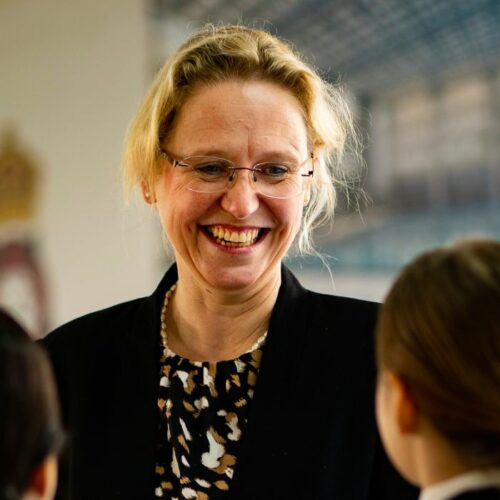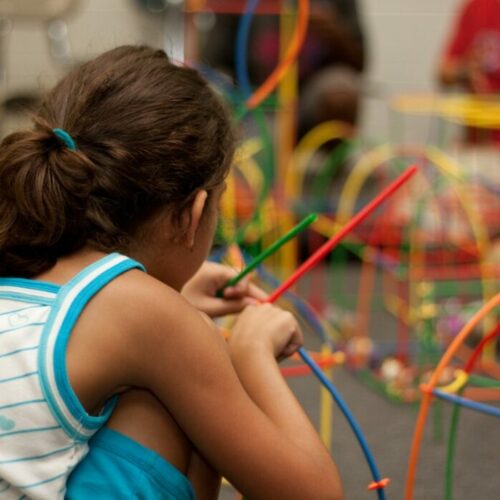Featured principal: Paval Gariboli sits down with Mother, Baby Child
Pavla Gariboli, the Centre Director at The Cardinal Valley Nursery sits down with Mother, Baby & Child to discuss parent-teacher relationships, teaching strategies and more

What do you like most about working with children?
There’s nothing better, in my opinion, than being able to ‘play’ all day long with children, during which they unfold their natural curiosity, in addition to a sense of wonder and enthusiasm for play and learning. Through play, children help me see things from a whole new perspective which is so uplifting and inspiring.
How important are parent-teacher relationships at The Cardinal Valley Nursery?
Over the years of my teaching career, I’ve spoken with many parents and educators about what a ‘good parent-teacher relationship’ should be. The answers from those conversations were varied and underpinned by a wide range of beliefs and values.
I think that, these days, some parents can come across as overcommitted and anxious, and many have unrealistic expectations. This is certainly not a healthy start to a relationship. We at The Cardinal Valley Nursery understand the need for a consistent, effective and open communication that’s achieved through collaboration, understanding of our common goals and, most importantly, trust.
We respect and value our parents as the prime caregivers and learn through them about their children’s needs, likes and dislikes. Finally, parent-teacher relationships don’t just happen, they develop and flourish over time.
As a centre director, how would you describe a successful early years’ education?
I see a successful early years’ education through the happiness, success and accomplishments of every child. A successful programme is one that ensures that the child is the centre of focus, and enables them to discover, explore and learn at their own terms without constantly being instructed and directed to perform actions.
Finally, the goal of a successful early years’ education now is to lay a solid foundation for the child in their key development years, equipping them with the skills and potential to compete and succeed in an ever-changing world.
Tell us more about the D-ThinkEd® approach, the world curriculum, and how they’re different.
D-ThinkEd® is an approach based on the design-thinking methodology first developed at Stanford University, California. At The Cardinal Valley, we use design thinking through play to develop children’s creative confidence and foster an active problem-solving mindset.
Our world curriculum is a unique blend of the British EYFS, IB and American Common Core, with an intrinsic focus on the cross-contextual integration of the curriculum. With the constant evolution of education, children must now learn the connections between curricular subjects and themes, instead of just ‘learning’ about individual subject matters in classrooms.
Through design thinking, we impart the right skills to our children, so they can approach an exercise, activity or project as problem-solvers and leaders. These skills help unlock their creative curiosity and facilitate a quick and agile mindset with the ability to understand complex concepts and critically think about them.
How is your learning through play approach different?
Play is one of the most powerful tools that children employ to learn, explore and develop. Our job is to foster an environment where they can leverage this power of play. We give them uninterrupted blocks of time to play and reach deeper levels of learning and understanding.
As children might approach a play-based exercise where they’re learning about the concept of gravity, for instance, we leverage the use of tools, materials, resources and the environment to let them explore, develop hypotheses, discover and record results for themselves. When they experience what gravity means for themselves through play, they have a better understanding of it than if we were to read it out to them from a book. We at The Cardinal Valley let children create their own paths by leveraging the power of play.
How do you know if your teaching strategies are effective?
We place great emphasis on observations and assessments. We assess children throughout the year to identify their strengths and areas of interest. We’re particularly keen on recording the beginning and end of term assessments as these help us discuss with parents the unique gifts of their children, and how much they have progressed over the past few months.
We also follow an assessment model that assesses children along multiple intelligence domains, as we then share with parents the varied range of domains that their child is competent in.
Details: For more information, visit Cardinal Valley Nursery Dubai. If you enjoyed this article, you may like this story on early development in the digital age.











Comments